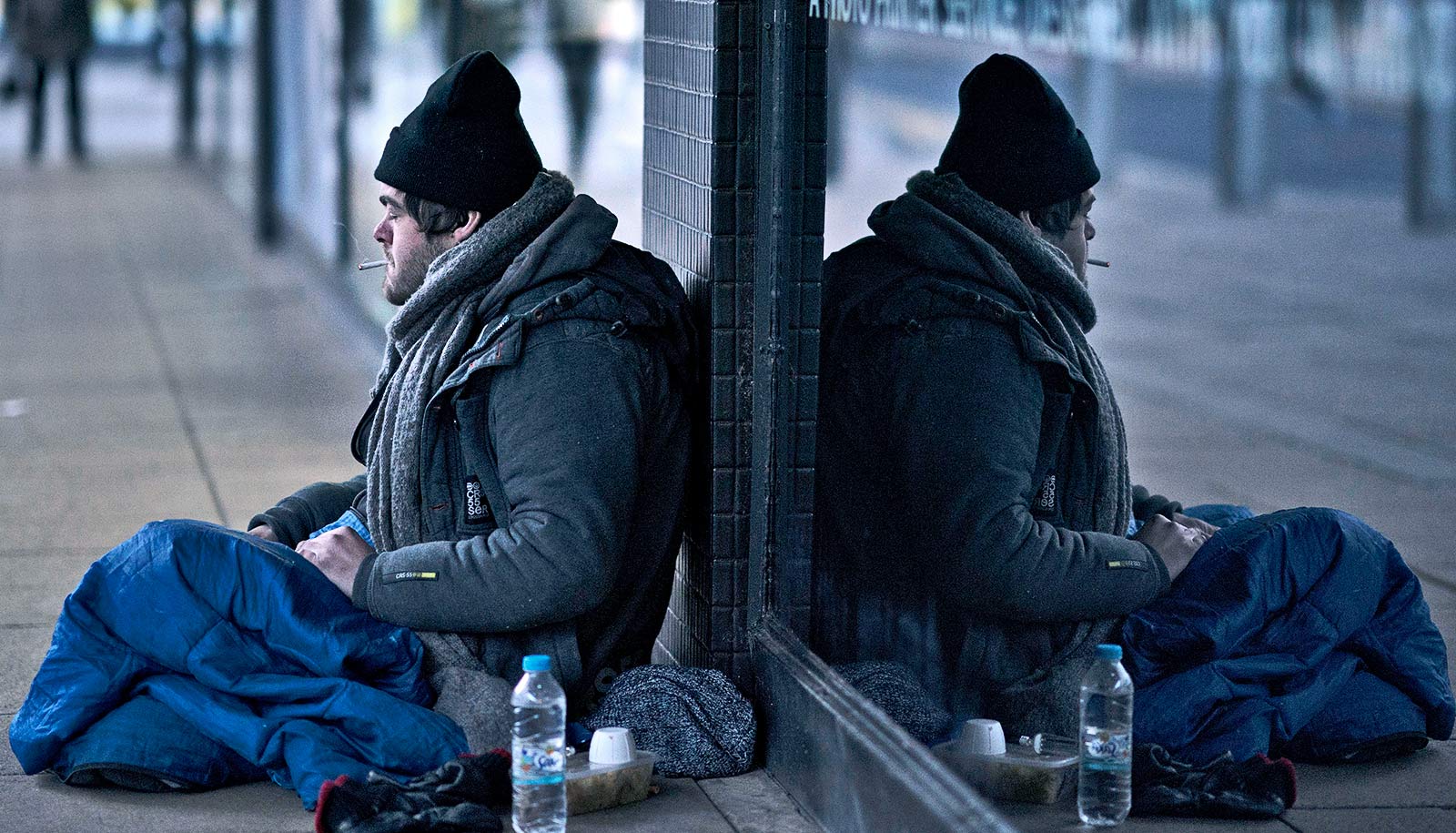
(Credit: Christopher Furlong/Getty Images )
When mental illness isn’t a medical issue, homeless people suffer
Many of the consequences of mental illness—including homelessness—have been "demedicalized," or seen as falling outside the scope of medical care.
A new case study involving a homeless man with schizophrenia highlights what happens when mental illness is “demedicalized,” or seen as falling outside the scope of medical care.
The article, which appears in the New England Journal of Medicine, discusses the case of a homeless California man who was a frequent visitor to a local emergency room. Six times over the course of a few months the man, who doctors had previously diagnosed with schizophrenia, presented with auditory hallucinations and suicidal thoughts after losing his medication. Each time, he was released back to the streets without extended psychiatric care.
The article argues that this case and countless others like it happen because many of the consequences of mental illness—including homelessness—have been demedicalized. All too often, as in the case of the California man, the criminal justice system ends up filling the void left by demedicalization, the authors say. The man they describe was later jailed on a felony charge.
The article is part of a new series in the journal called “Case Studies in Social Medicine,” which aims to bring social science perspectives into the medical field. Here, coauthor Luke Messac, a resident in emergency medicine at Brown University, discusses the case study and the implications of demedicalization.
The post When mental illness isn’t a medical issue, homeless people suffer appeared first on Futurity.
Share this article:
This article uses material from the Futurity article, and is licenced under a CC BY-SA 4.0 International License. Images, videos and audio are available under their respective licenses.


